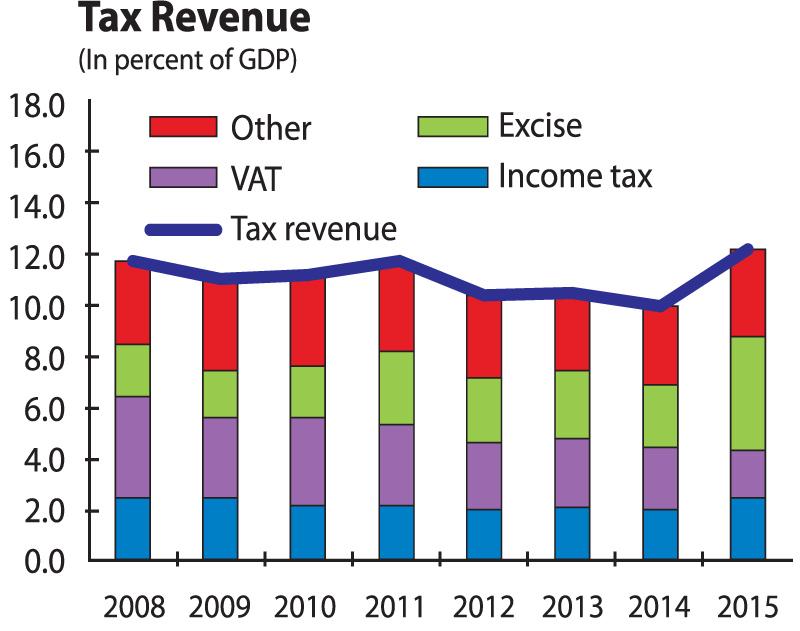
The International Monetary Fund (IMF) last week said the Sri Lankan economy and financial markets have begun to stabilize after implementation of government reforms with 2016 fiscal targets within reach, despite delays in implementing the Value Added Tax (VAT) changes
In statements released after the IMF’s first review of Sri Lanka’s economic performance under its three-year, US$1.5 billion, Extended Fund Facility (EFF) arrangement, the Fund said there was no immediate need to raise interest rates again, following monetary tightening earlier this year, since inflation was abating and loan costs rising.
The IMF forecast Sri Lanka’s economy would grow slower than anticipated since external conditions had turned unfavourable, revising down its growth projection to 4.5 percent in 2016, slower than the 5% estimated earlier, and 4.8 percent in 2017.
“The 2016 fiscal targets are within reach, despite the delay in implementing the VAT amendments,” the IMF said. “Revenue losses from the interim suspension are estimated to be offset by stronger-than-envisaged collections of income taxes and import duties as well as the rationalization of spending on goods and services and public investment.”
The IMF said the 2016 primary deficit will likely fall below the end-December ceiling of Rs. 97 billion (0.8 percent of GDP), with tax revenue likely exceeding the full year target of Rs. 1,428 billion (11.8 percent of GDP). Interest payments are expected to be larger than estimated by 0.4 percentage points of GDP mainly due to the upward shift in the government bond yields by around 200 basis points since March, and would raise the overall deficit to around Rs. 700 billion (5.7 percent of GDP).
The IMF called for “strong political commitment and sustained actions” to continue government reforms, the most important of which are expected to be implemented from the second quarter of 2017 which will lay the foundation for medium-term fiscal consolidation.
“Progress has been uneven, although efforts are being made on all fronts including for past-due structural benchmarks. Fiscal reforms are designed to provide the means for achieving fiscal consolidation on a durable basis. Progress on meeting the structural benchmarks on fiscal policy, public financial management, and State-Owned Enterprises without undue delays is critical for keeping the program on track,” the IMF said.
In its assessment of the government’s fiscal performance through end-September in its first program review last month, the IMF said that according to preliminary data, the primary balance and tax revenues have “outperformed the end-September indicative targets.”
Over January-September this year, the primary deficit was Rs. 35 billion, exceeding the target by Rs. 50 billion, 0.4 percent of GDP). Tax revenue collection was Rs. 46 billion higher than the target, despite the suspension of the VAT amendments during July-October. “The revenue outperformance largely came from collections of income tax and import duties.”
